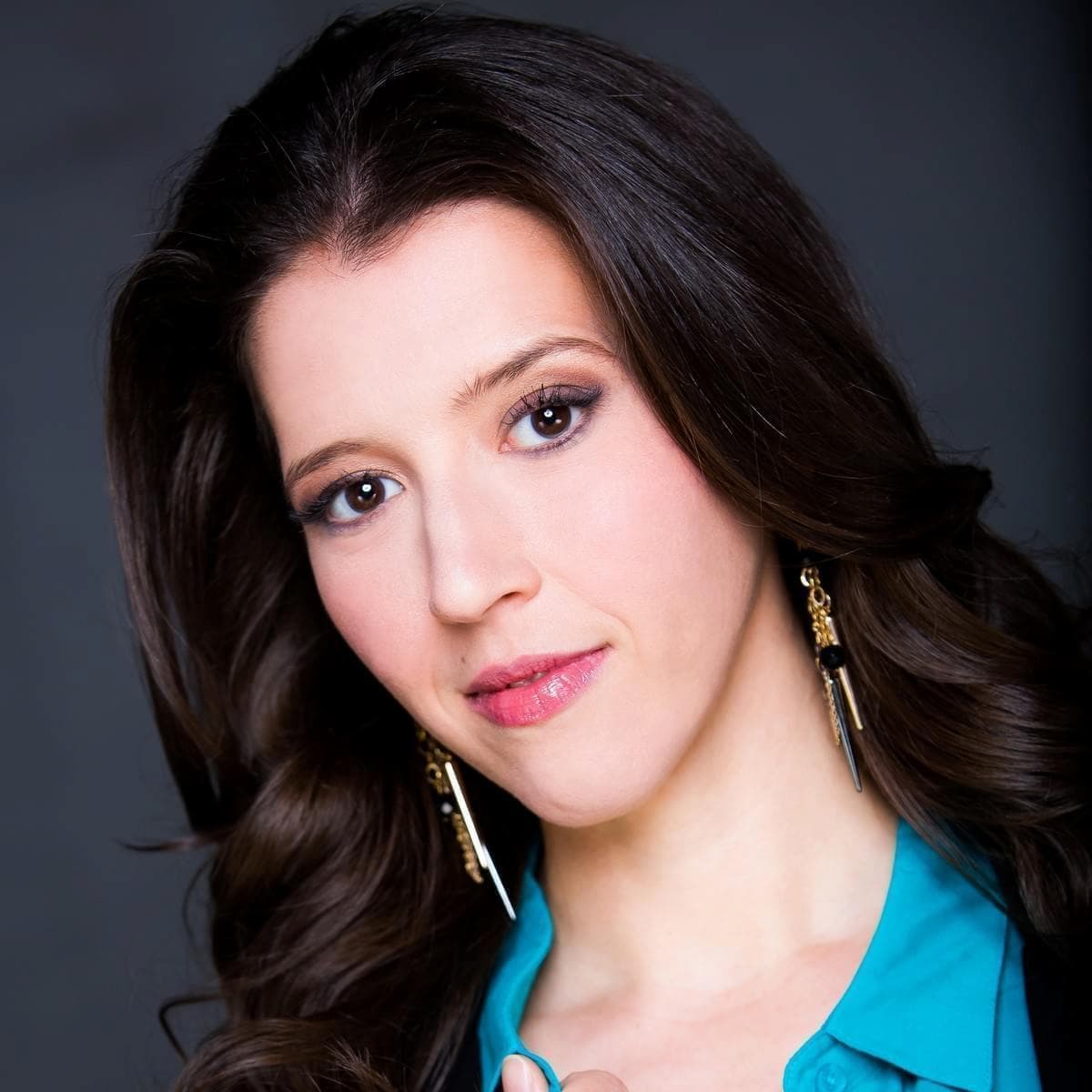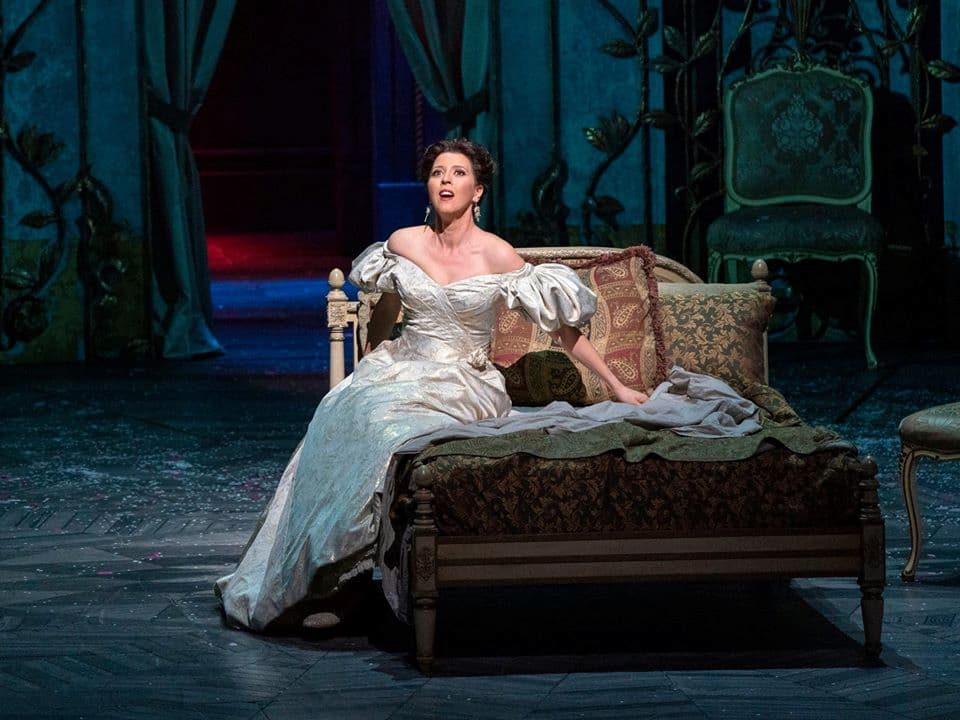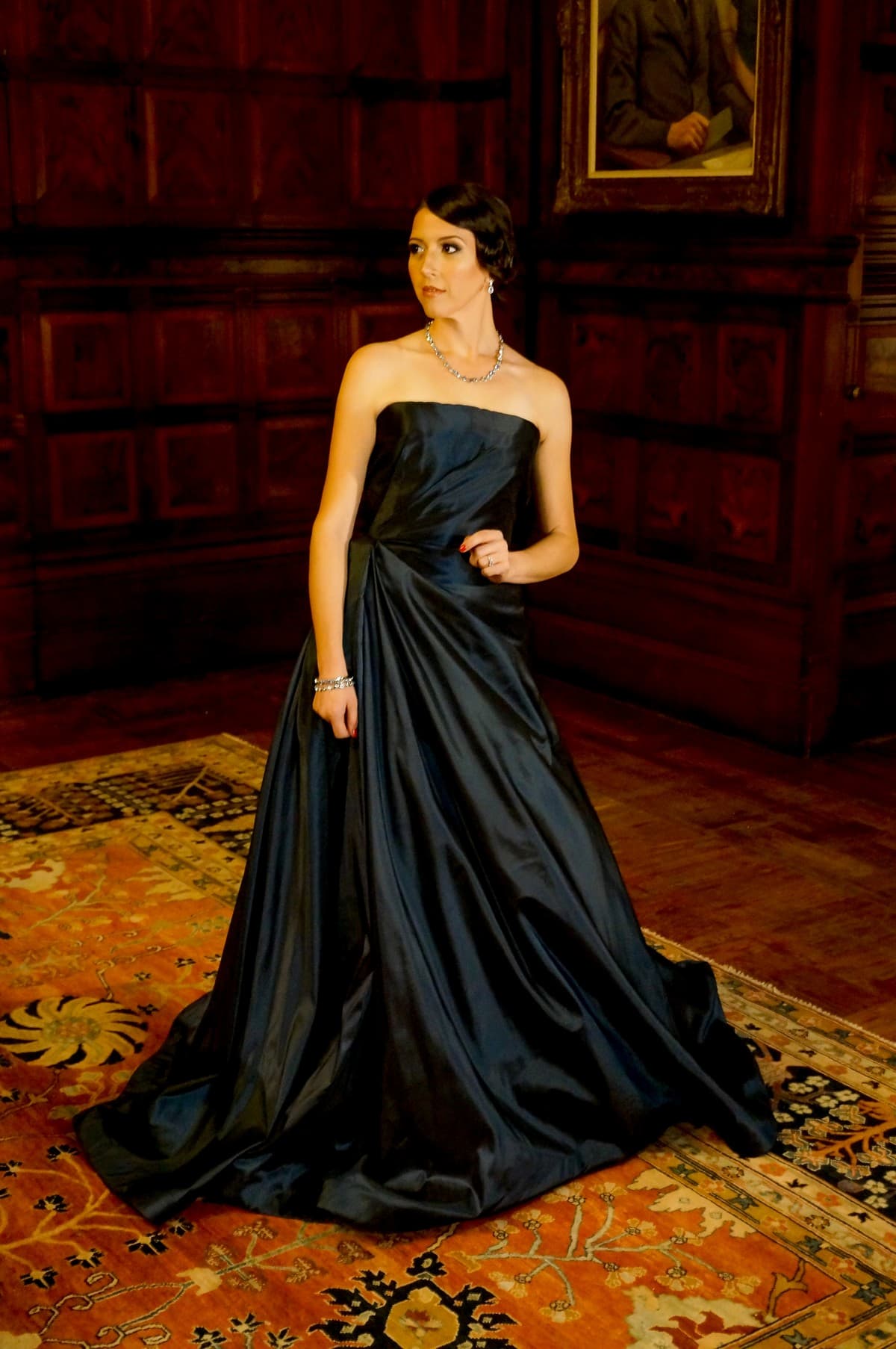The lyric coloratura soprano Lisette Oropesa has achieved worldwide acclaim for her seamless vocal technique, expressive musicality, linguistic affinity, and stylistic integrity. According to critics, “she has a technique without weakness, and everything she touches turns into gold.” She sang her first major role, “Susanna” in Le Nozze di Figaro at the Met, and has since appeared in over 140 performances in many different roles.
Lisette Oropesa Sings Mozart’s Marriage of Figaro, “Deh, vieni, non tardar”
Growing Up

Lisette Oropesa
Born in New Orleans, Louisiana on 29 September 1983 to parents of Cuban ancestry, Oropesa grew up in Baton Rouge. Her mother, Rebeca Oropesa, was an operatic singer who had appeared in various local productions. Young Lisette would listen to recordings of her mother as “Violetta” in La Traviata, and the family had a huge collection of recordings at home. As Lisette remembers, “My mom was a big fan of Anna Moffo, so growing up I heard her voice and artistry a lot.”
Rebecca Oropesa was also involved in the local church choir, having taken up the position of junior choir director. As such, the family visited the church every Sunday, and Lisette got her start in singing in public. “I sang solo almost every week,” she explained in an interview. Naturally, her mother also became her first vocal teacher.
Lisette Oropesa Sings Donizetti’s Daughter of the Regiment, “Chacun le sait”
Other Interests

Oropesa appeared in her first opera at the Baton Rouge Opera in Hansel and Gretel, where she played one of the gingerbread children. In addition she heard many Met radio broadcasts, which her grandfather recorded every week. However, Oropesa had other musical interests as well.
She played a little piano and guitar, but picked up the flute in her early teens. In fact, she studied the flute formally for about 10 years, and greatly enjoyed performing in band and various orchestras. However, she remembered that she always wanted to be a singer. As she explained, “I knew music was my journey but wasn’t sure how exactly to focus it; I wanted to be a singer/songwriter for a while, then a flutist, and now I’m really glad that I began to pursue a career in opera.”
Lisette Oropesa Sings Verdi’s Rigoletto, “Caro Nome”
Louisiana State University

When it was time to go to college, Oropesa auditioned both as a flautist and in the vocal department. By the end of her freshman year, she won several first prizes in small vocal competitions, and she decided to take the leap. As she remembers, “I realised that singing was really special because it allowed me to combine languages, one of my first passions, with acting and with music.”
Oropesa started to study voice at LSU with Robert Rayson, a terrific tenor on staff at the New York City Opera for decades. For Oropesa, “the man is a genius. He knew instantly what to do with me and how to approach training a young voice… He tweaked my technique carefully over four years, and now I can say that I have a very solid understanding of my voice, its needs and limits, because he helped me to better understand it.”
Lisette Oropesa Sings Bellini’s I Puritani, “O rendetemi la speme…”
Metropolitan Opera Auditions

Robert Grayson
After getting experience in several college productions, Oropesa entered the Metropolitan Opera Auditions in 2005. At 21, she was the youngest contestant. It was Grayson who suggested that she enter the composition, and Oropesa started in district competition, as part of singers from in and around south Louisiana. The finalists of that first round go to the regionals, with singers from the Gulf Coast and Puerto Rico.
Only the first place winner in the regionals goes to the semi-finals in NYC. Oropesa remembers, “I was pretty confident that I would at least progress to the regionals, but I thought for sure it would end there. There were lots of good singers.” As history records, Oropesa not only took the regional crown but also took the NYC finals with a tremendous performance of “Una voce poco fa.” Immediately thereafter, she entered the Lindemann Young Artists Program and moved to New York City.
For more of the best in classical music, sign up for our E-Newsletter
